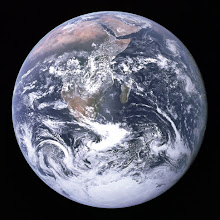This is this catastrophe that has brought this writer out of a months-long writing hiatus. This is a catastrophe that will also help bring America out of its “environmental hiatus” (at least partially, if not fully). This catastrophic event—in addition to altering physical landscape of the southeastern United States—will have a lasting impact on both the US political and economic landscapes.
In a 30 April article from the Huffington Post, a former professor and boss of this writer, Dr. Steve Cohen of Columbia University’s Earth Institute, wrote the following on the benefits and costs of our energy use patterns:
"The economy that provides such benefits and wonders to all of us depends on massive amounts of energy to function and our need for energy knows no bounds. We are addicts and our addiction has reached the point at which we will sacrifice human life and ecosystems, oceans and sea life to ensure our fix. Our society, economy and political stability depend on low priced energy and massive amounts of it. The dead workers in the Gulf and in a West Virginia mine and the incredible destruction of the Gulf region's ecology are the cost side of a cost/benefit equation that many still see as largely benefit. But this latest disaster could be a game changer. The balance may be shifting."
"Over the next several months the Gulf's fishing and tourism industry will be decimated. The pictures and stories we will see should end the cry of "drill baby drill" for the foreseeable future. These stories are custom-made for the media and the strength of their emotional impact should not be under-estimated. The Obama Administration will soon be backing off its support for new off-shore drilling and will pursue the transition away from fossil fuels with greater urgency."
In simple terms, fresh, new momentum has just been given to the environmental movement in this country. It is indeed truly “tragic” that it took a tragedy of this magnitude to mobilize Americans.
This rivals what we saw and experienced from Santa Barbara, California, during and after the 1969 oil spill there. As a former Santa Barbara County resident, this writer can attest to the lasting physical impact of that particular spill. But, according to the old Buddhist saying, “Out of the mud grows the lotus.” That disaster in Santa Barbara is also credited with helping to catalyze the Earth Day/Week/Month celebrations that have become routine in recent years.
Many critics want to label the current crisis in the Gulf of Mexico as “President Obama’s (Hurricane) Katrina.” That analogy is not quite on the mark; instead, it should be seen as “President Obama’s environmental 9/11.” Much like the Bush Administration used 9/11 as an opportunity to further its politico-military agenda, so the Obama Administration now has the opportunity to further its national energy and environmental agendas—based on a clean(er) energy economy. But will the Administration fully seize the opportunity? Stay tuned.
Going from the macro to the micro, from the social to the personal, this writer also notes that his daughter was born within 5 minutes of that terrible explosion on the Deepwater Horizon, in the Gulf. And so, one might also be led to ask, “What type of world will this unsuspecting, innocent child be inheriting?” Should she expect more of such environmental catastrophes, in her adult life? How many such catastrophes could she and her peers survive? The questions go on and on. The process of speculating too far on these issues seems daunting, indeed.
An underwater oil gusher in the Gulf now threatens to circumnavigate the entire state of Florida, carried by the currents, gradually creeping up the southeastern seaboard of the United States. And all along its deadly path, it is slowly destroying life. This is what experts call a “slow onset emergency.” If there is a silver lining around this blackish-brownish cloud of oil in the water, it is this: the repeated audio-visual hammering that the public will have to endure in upcoming weeks will be brutal. This does not just refer to images of slowly dying birds and fish, but also slowly dying businesses and ways of life in the Gulf and beyond. On that note, Professor Cohen concluded his own Huffington Post piece by saying,
"The media and web coverage of the oil spill will be extensive and long lasting. While it won't rival Tiger Woods or Michael Jackson, it will be hard to avoid, heart wrenching and graphic. And it will change the politics of energy and environment for a generation."
Professor Cohen is correct. In upcoming articles here, there will be coverage of the political and economic and social fallout of the Gulf oil spill—both here in southern California and across the nation. In a sense, all Californians and indeed all Americans are all Gulf residents now.
Did it have to take a disaster of this magnitude to wake America up to some of the terrible costs associated with petroleum extraction? Perhaps it did. Either way, Americans should not overlook this opportunity to rethink their notions of the inter-relationships between energy extraction and economic development. Or, to paraphrase Shakespeare, “Ask not for whom the oil spills, it spills for thee!”
Blaine Pope








No comments:
Post a Comment